-
 Bitcoin
Bitcoin $83,456.2183
-2.10% -
 Ethereum
Ethereum $1,581.6766
-3.19% -
 Tether USDt
Tether USDt $1.0000
0.01% -
 XRP
XRP $2.0754
-3.06% -
 BNB
BNB $581.5622
-0.87% -
 Solana
Solana $125.4498
-3.64% -
 USDC
USDC $1.0000
0.01% -
 TRON
TRON $0.2517
-0.62% -
 Dogecoin
Dogecoin $0.1544
-3.43% -
 Cardano
Cardano $0.6075
-5.31% -
 UNUS SED LEO
UNUS SED LEO $9.3772
-0.61% -
 Chainlink
Chainlink $12.2969
-2.78% -
 Avalanche
Avalanche $18.7882
-6.65% -
 Stellar
Stellar $0.2347
-2.65% -
 Toncoin
Toncoin $2.8697
-1.77% -
 Shiba Inu
Shiba Inu $0.0...01167
-2.16% -
 Sui
Sui $2.0829
-4.50% -
 Hedera
Hedera $0.1570
-5.62% -
 Bitcoin Cash
Bitcoin Cash $319.7787
-2.88% -
 Litecoin
Litecoin $75.6696
-3.49% -
 Polkadot
Polkadot $3.5301
-3.64% -
 Dai
Dai $1.0000
0.01% -
 Bitget Token
Bitget Token $4.2258
-1.94% -
 Hyperliquid
Hyperliquid $15.0950
-6.64% -
 Ethena USDe
Ethena USDe $0.9991
0.00% -
 Pi
Pi $0.6072
-18.52% -
 Monero
Monero $216.6818
2.44% -
 Uniswap
Uniswap $5.1792
-3.47% -
 OKB
OKB $52.2750
0.70% -
 Pepe
Pepe $0.0...07035
-3.66%
Will the restriction of OKX devices affect OTC trading?
OKX's device restrictions, while primarily for security, indirectly impact OTC trading by limiting account access and verification, potentially causing delays and hindering transactions; adaptability and alternative methods are crucial for mitigating these effects.
Feb 28, 2025 at 07:36 pm
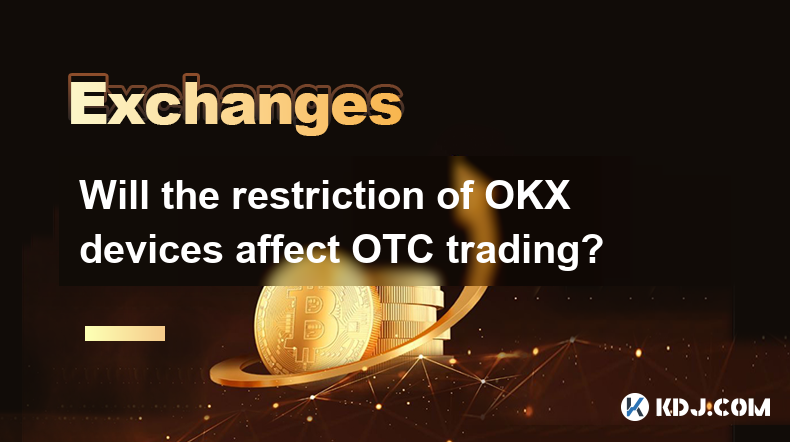
Will the Restriction of OKX Devices Affect OTC Trading?
Key Points:
- OKX's device restrictions primarily aim to enhance security and combat fraudulent activities, impacting OTC trading indirectly.
- The impact on OTC trading depends on the specifics of the restriction, the methods employed by traders, and the adaptability of both traders and counterparties.
- While direct restrictions on specific devices for OTC transactions are unlikely, indirect consequences such as limitations on account access and verification processes can significantly affect OTC trading efficiency and accessibility.
- The impact varies depending on the trader's technological proficiency and reliance on specific devices.
- Adaptability and alternative solutions are crucial for mitigating the effects of device restrictions on OTC trading.
- Understanding OKX's Device Restrictions and their Potential Impact on OTC Trading:
OKX, like many other cryptocurrency exchanges, implements security measures to protect user accounts and funds. These measures often involve restrictions on the devices used to access accounts. This might include limiting logins to specific IP addresses, restricting access from certain operating systems or browsers considered vulnerable, or implementing two-factor authentication (2FA) requirements tied to specific devices. While these measures are not directly aimed at OTC trading, they can indirectly affect its smooth operation. OTC trading, by its very nature, often involves transactions outside the formal exchange environment, relying heavily on trust and communication between buyers and sellers. These transactions typically involve the exchange of cryptographic keys and funds outside the confines of a centralized platform's security protocols. Therefore, any restrictions imposed by OKX on the devices used to access accounts, even if not directly targeted at OTC trading, can create significant hurdles for users involved in such activities. For example, a trader accustomed to using a specific device, perhaps one with specialized software for managing cryptocurrency wallets or facilitating secure communication, might find their ability to conduct OTC trades hampered if that device is blocked by OKX's security measures. This might involve being locked out of their account during a critical moment in an OTC transaction, leading to delays, missed opportunities, or even disputes with counterparties. The consequences can be far-reaching, especially in a fast-paced and volatile market like cryptocurrency. The level of disruption depends heavily on the nature of the restrictions and the trader's ability to adapt to them. A simple IP address restriction might be easily circumvented by using a VPN, while a more stringent restriction on the device itself could necessitate a complete overhaul of the trader's workflow and security protocols. The impact also depends on the technological expertise of both the trader and their counterparty. A technologically savvy trader might readily adapt to new security measures, while a less experienced trader could be completely sidelined. Furthermore, the reliance on specific devices and software within the OTC trading ecosystem adds another layer of complexity. The security measures implemented by OKX might inadvertently create incompatibility issues, disrupting established workflows and communication channels between traders and counterparties.
- The Indirect Effects of Device Restrictions on OTC Trading Efficiency and Accessibility:
Even without explicitly blocking specific devices for OTC transactions, OKX's security measures can indirectly affect OTC trading. This impact manifests primarily through limitations on account access and verification processes. For instance, if a trader's primary device is blocked due to suspected security breaches or suspicious activity, their ability to access their funds and complete OTC trades is immediately compromised. This could lead to significant delays, particularly in time-sensitive transactions where rapid execution is crucial. Moreover, the verification process for OTC trades often involves confirming identity and ownership of funds through various methods, including device-based authentication. If a trader's preferred device is restricted, they might encounter difficulties in completing the verification steps, delaying or even preventing the completion of the OTC trade. This is especially problematic when dealing with large sums of cryptocurrency, where rigorous verification is often a standard practice. The reliance on multiple devices and platforms for OTC trading also complicates the situation. Many traders use a combination of hardware wallets, software wallets, and communication platforms to manage their transactions. If OKX's device restrictions affect any part of this ecosystem, the entire OTC trading process could be disrupted. For instance, if a trader uses a specific mobile device for two-factor authentication and that device is restricted, they might be unable to authorize transactions, hindering their ability to participate in OTC trades. Similarly, if a particular communication platform used for coordinating OTC trades is blocked or flagged by OKX's security measures, communication with counterparties could be significantly hampered, leading to delays and potential misunderstandings. The impact is not limited to individual traders; it can also affect the overall liquidity and efficiency of the OTC market. If a substantial number of traders face difficulties accessing their accounts or completing verification processes due to device restrictions, the overall volume of OTC trades could decline, affecting market depth and price discovery.
- Adaptability and Alternative Solutions for Mitigating the Effects of Device Restrictions:
The impact of OKX's device restrictions on OTC trading can be mitigated through adaptability and the exploration of alternative solutions. Traders can proactively adapt to these restrictions by diversifying their device usage and adopting robust security practices. This involves using multiple devices for accessing their accounts and conducting OTC trades, ensuring that they have backup options in case one device is restricted. This could include using different operating systems, browsers, or even physical locations to access their accounts. Furthermore, traders should prioritize strong password management practices and enable robust two-factor authentication to minimize the risk of account compromise. Regularly updating software and firmware on all devices used for cryptocurrency trading is also crucial for enhancing security and preventing vulnerabilities that might trigger device restrictions. Beyond individual adaptation, traders can explore alternative methods for conducting OTC trades that minimize reliance on specific devices or platforms. This could involve utilizing decentralized exchanges (DEXs) that offer greater control over transactions and are less susceptible to centralized platform restrictions. Alternatively, traders can explore peer-to-peer (P2P) trading platforms that operate outside the direct control of exchanges like OKX, offering greater flexibility and potentially circumventing device restrictions imposed by centralized entities. Another strategy is to enhance communication channels with counterparties. If a specific communication platform is affected by OKX's restrictions, traders can explore alternative communication methods, such as encrypted email or secure messaging apps, to ensure seamless communication during OTC transactions. Furthermore, traders should establish clear communication protocols with their counterparties to address potential delays or disruptions caused by device restrictions. This could involve agreeing on alternative contact methods, setting realistic timelines for transactions, and establishing clear escalation procedures for resolving any issues that might arise. The use of escrow services can also enhance trust and security in OTC trades, mitigating the risks associated with device restrictions and potential account compromises. Escrow services act as intermediaries, holding funds until both parties fulfill their obligations, reducing the likelihood of disputes and protecting traders from potential losses.
- The Role of Technological Proficiency in Navigating Device Restrictions:
The impact of OKX's device restrictions on OTC trading is significantly influenced by the technological proficiency of the traders involved. Technologically savvy traders are better equipped to navigate these restrictions and find alternative solutions. They can readily adapt to new security measures, utilize VPNs to bypass IP address restrictions, and explore various methods for securing their accounts and conducting OTC trades. They understand the importance of diversifying their devices and using robust security protocols to minimize the impact of device restrictions on their trading activities. In contrast, traders with limited technological expertise might find it more challenging to adapt to device restrictions. They might struggle to understand the technical nuances of security measures, making them more vulnerable to account compromises and disruptions in their OTC trading activities. They might lack the skills to effectively utilize VPNs, implement strong password management practices, or explore alternative trading methods. This disparity in technological proficiency can create an uneven playing field in the OTC market, favoring technologically advanced traders while potentially disadvantaging those with less technical expertise. The reliance on specific software and hardware for OTC trading further exacerbates this issue. Traders who rely heavily on specialized software or hardware for managing their cryptocurrency wallets or facilitating secure communication might face significant challenges if their preferred tools are incompatible with OKX's security measures. This highlights the importance of investing in education and training to enhance technological proficiency in the cryptocurrency trading community. By equipping traders with the necessary skills and knowledge, the industry can mitigate the negative impact of device restrictions and promote a more inclusive and equitable OTC trading environment. Moreover, exchange platforms like OKX have a responsibility to provide clear and user-friendly guidelines on their security measures, ensuring that all traders, regardless of their technical expertise, understand the implications of these restrictions and can effectively adapt to them.
FAQs:
Q: Will OKX completely block my device from accessing my account for OTC trading?
A: It's unlikely OKX will directly block a device solely for OTC trading. However, security measures like IP restrictions or suspicious activity flags might temporarily or permanently limit access if the device is deemed a security risk. This indirect restriction can significantly impact OTC trading.
Q: If my device is restricted, can I still access my funds for OTC trades?
A: You might face significant difficulties. While you may still own your cryptocurrency, accessing it for OTC trades could be hampered by limitations on logins, verification processes, and two-factor authentication tied to the restricted device.
Q: What alternative methods can I use to conduct OTC trades if my primary device is restricted?
A: Consider using a different device, employing a VPN (carefully and legally), exploring decentralized exchanges (DEXs), utilizing peer-to-peer (P2P) platforms, or enhancing communication with counterparties through alternative channels like encrypted email.
Q: How can I minimize the risk of my device being restricted by OKX?
A: Maintain strong passwords, enable two-factor authentication, regularly update your device software and operating system, be cautious of phishing attempts, and avoid using devices for suspicious or illicit activities.
Q: Does OKX provide support if my device is restricted and I'm unable to conduct OTC trades?
A: OKX typically offers customer support channels. However, the resolution might depend on the reason for the restriction and the evidence you provide. It's crucial to follow their support procedures diligently.
Q: Are there legal implications if I try to circumvent OKX's device restrictions?
A: Using unauthorized methods to circumvent security measures could violate OKX's terms of service and potentially lead to account suspension or legal repercussions. Always operate within the legal and ethical boundaries.
Q: How does the restriction of OKX devices impact the overall liquidity of the OTC market?
A: Restrictions can decrease liquidity by limiting the number of active traders participating in OTC transactions, especially if many traders face access issues due to device limitations. This could lead to wider bid-ask spreads and reduced market efficiency.
Q: What role does the counterparty play in navigating device restrictions during OTC trades?
A: The counterparty's technological proficiency and willingness to adapt to alternative communication methods and transaction processes significantly influence the success of an OTC trade when one party experiences device restrictions. Open communication and flexibility are key.
Disclaimer:info@kdj.com
The information provided is not trading advice. kdj.com does not assume any responsibility for any investments made based on the information provided in this article. Cryptocurrencies are highly volatile and it is highly recommended that you invest with caution after thorough research!
If you believe that the content used on this website infringes your copyright, please contact us immediately (info@kdj.com) and we will delete it promptly.
- Bitcoin (BTC) Dips Alongside Stock Futures as Nvidia Corp. NVDA Shares Tumble
- 2025-04-16 13:15:13
- Bitcoin (BTC) Faces a Critical Test as Global Markets Remain Volatile and Macroeconomic Tensions Escalate
- 2025-04-16 13:15:13
- Bitcoin (BTC) has been moving between $80,00 and $85,00 for the fourth day as the uncertain market for the U.S.-China trade dispute continues.
- 2025-04-16 13:10:12
- MicroStrategy (Formerly ) Doubles Down on BTC After a Performance in Q1 2025
- 2025-04-16 13:10:12
- Real-world asset-focused coin MANTRA OM/USD Topped The Cryptocurrency Gainers List On Tuesday
- 2025-04-16 13:05:13
- Semler Scientific Files to Issue $500M in Securities Following $30M DOJ Settlement
- 2025-04-16 13:05:13
Related knowledge
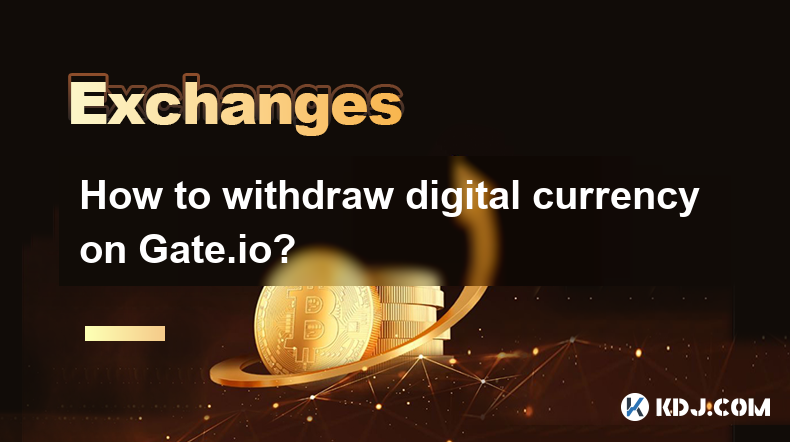
How to withdraw digital currency on Gate.io?
Apr 16,2025 at 01:21pm
Withdrawing digital currency from Gate.io involves a few straightforward steps, but it's important to ensure you follow each one carefully to avoid any issues. This guide will walk you through the process of withdrawing your digital assets safely and efficiently. Preparing for WithdrawalBefore initiating a withdrawal, it's crucial to ensure that your ac...
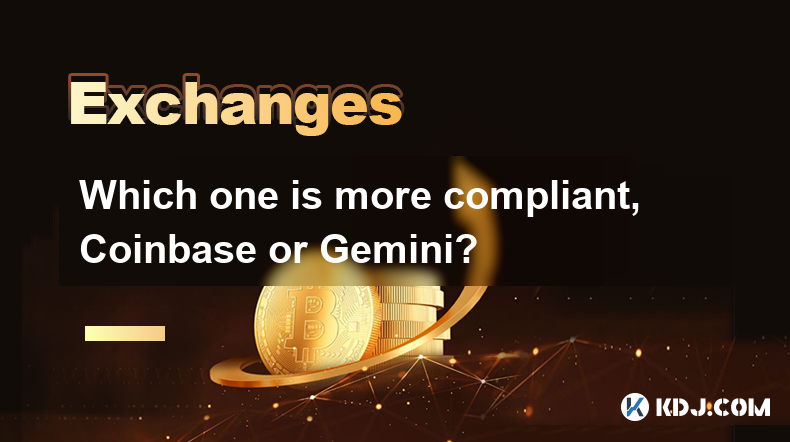
Which one is more compliant, Coinbase or Gemini?
Apr 16,2025 at 07:35am
When considering which cryptocurrency exchange is more compliant, Coinbase or Gemini, it's essential to delve into the regulatory frameworks and compliance measures each platform has in place. Coinbase and Gemini are both well-established exchanges in the United States, known for their strong emphasis on compliance with financial regulations. However, t...
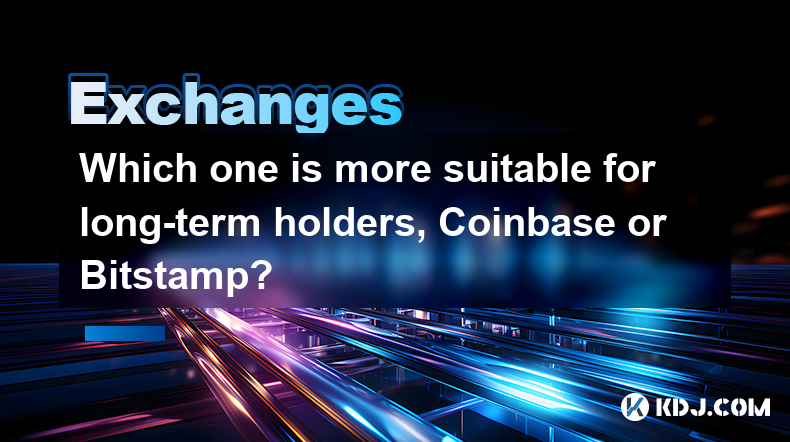
Which one is more suitable for long-term holders, Coinbase or Bitstamp?
Apr 16,2025 at 02:15am
When considering which cryptocurrency exchange is more suitable for long-term holders, Coinbase and Bitstamp both offer unique features that cater to different needs. Coinbase is known for its user-friendly interface and strong security measures, while Bitstamp is praised for its lower fees and more advanced trading options. In this article, we will del...
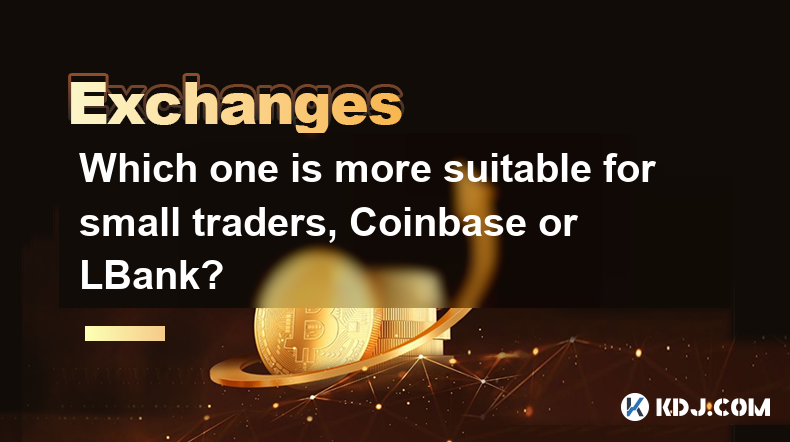
Which one is more suitable for small traders, Coinbase or LBank?
Apr 16,2025 at 10:49am
When choosing between Coinbase and LBank for small traders, it's crucial to consider various factors such as fees, user experience, security, and the range of cryptocurrencies available. Coinbase is often praised for its user-friendly interface and strong security measures, making it a popular choice among beginners. On the other hand, LBank offers a br...
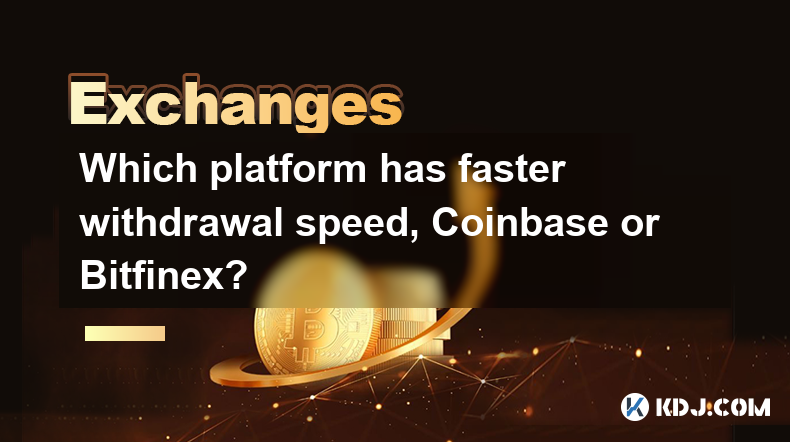
Which platform has faster withdrawal speed, Coinbase or Bitfinex?
Apr 16,2025 at 06:07am
When choosing a cryptocurrency exchange, one of the critical factors that traders consider is the speed of withdrawals. Both Coinbase and Bitfinex are well-known platforms in the crypto space, but they differ in terms of withdrawal speed. In this article, we will delve into the specifics of withdrawal processes on both platforms to determine which one o...
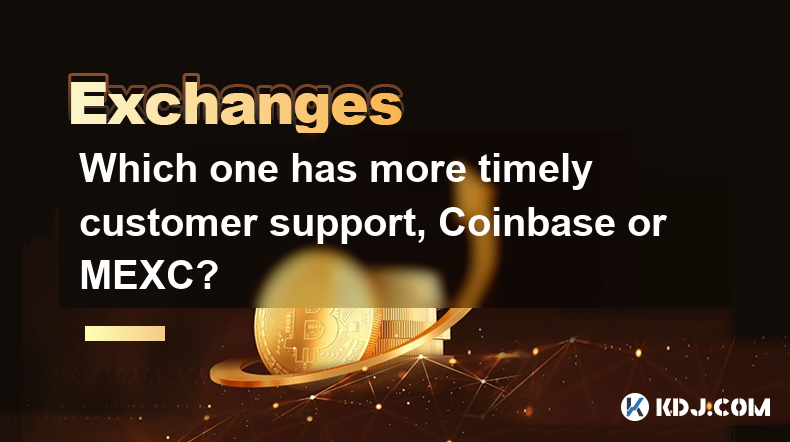
Which one has more timely customer support, Coinbase or MEXC?
Apr 16,2025 at 10:56am
When choosing a cryptocurrency exchange, one of the critical factors to consider is the quality and timeliness of customer support. Both Coinbase and MEXC are well-known platforms in the crypto space, but they differ in their approach to customer service. In this article, we will delve into the specifics of customer support at Coinbase and MEXC, analyzi...

How to withdraw digital currency on Gate.io?
Apr 16,2025 at 01:21pm
Withdrawing digital currency from Gate.io involves a few straightforward steps, but it's important to ensure you follow each one carefully to avoid any issues. This guide will walk you through the process of withdrawing your digital assets safely and efficiently. Preparing for WithdrawalBefore initiating a withdrawal, it's crucial to ensure that your ac...

Which one is more compliant, Coinbase or Gemini?
Apr 16,2025 at 07:35am
When considering which cryptocurrency exchange is more compliant, Coinbase or Gemini, it's essential to delve into the regulatory frameworks and compliance measures each platform has in place. Coinbase and Gemini are both well-established exchanges in the United States, known for their strong emphasis on compliance with financial regulations. However, t...

Which one is more suitable for long-term holders, Coinbase or Bitstamp?
Apr 16,2025 at 02:15am
When considering which cryptocurrency exchange is more suitable for long-term holders, Coinbase and Bitstamp both offer unique features that cater to different needs. Coinbase is known for its user-friendly interface and strong security measures, while Bitstamp is praised for its lower fees and more advanced trading options. In this article, we will del...

Which one is more suitable for small traders, Coinbase or LBank?
Apr 16,2025 at 10:49am
When choosing between Coinbase and LBank for small traders, it's crucial to consider various factors such as fees, user experience, security, and the range of cryptocurrencies available. Coinbase is often praised for its user-friendly interface and strong security measures, making it a popular choice among beginners. On the other hand, LBank offers a br...

Which platform has faster withdrawal speed, Coinbase or Bitfinex?
Apr 16,2025 at 06:07am
When choosing a cryptocurrency exchange, one of the critical factors that traders consider is the speed of withdrawals. Both Coinbase and Bitfinex are well-known platforms in the crypto space, but they differ in terms of withdrawal speed. In this article, we will delve into the specifics of withdrawal processes on both platforms to determine which one o...

Which one has more timely customer support, Coinbase or MEXC?
Apr 16,2025 at 10:56am
When choosing a cryptocurrency exchange, one of the critical factors to consider is the quality and timeliness of customer support. Both Coinbase and MEXC are well-known platforms in the crypto space, but they differ in their approach to customer service. In this article, we will delve into the specifics of customer support at Coinbase and MEXC, analyzi...
See all articles























































































